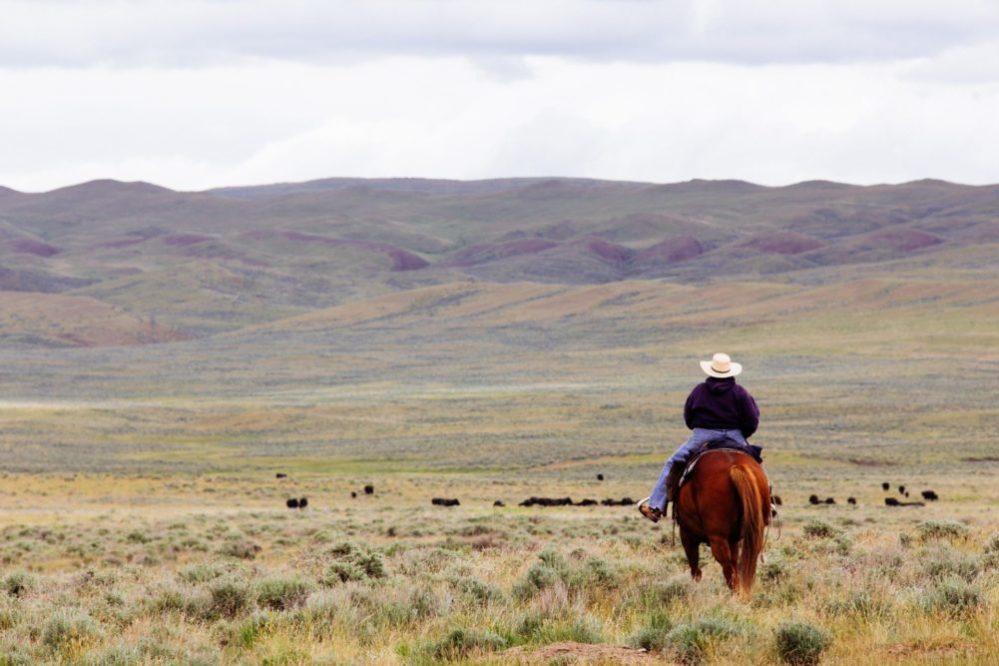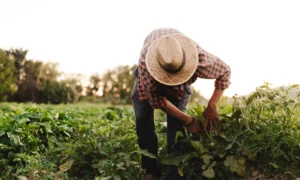Burger King attracted serious attention recently with the introduction of its low-methane Whopper. Initial reactions to the offering — and the music video it produced featuring ‘Walmart yodeling kid‘ Mason Ramsey to explain its purported benefits — were varied. But the debate perhaps overshadowed another new effort the fast-food chain is engaging in to address climate change.
Along with agribusiness major Cargill and the World Wildlife Fund (WWF), it’s working with ranchers in the US’s Northern Great Plains on a three-year initiative that will return cropland to native grasslands through a restoration program. The goal is to convert 8,000 acres of marginal cropland throughout Montana and South Dakota to diverse grasslands. Once established, beef cattle will be grazed throughout the reseeded grasslands to maintain them.
The partners estimate that the successful execution of the program will sequester the carbon equivalent of driving 70 million miles in an average vehicle. With roots extending as far as 15 feet beneath the surface, native grasses are efficient at pulling carbon from the atmosphere and storing it deep underground. The extensive root systems also improve soil water-holding capacity and help mitigate soil runoff.
“The Northern Great Plains evolved with tens of millions of bison once upon a time. Grazing is an important part of maintaining grasslands in this region,” WWF director of media and external affairs Susan McCarthy told AFN.
One-fifth of the US domestic cattle herd is located in the Northern Great Plains, she added. To tap into the grazing power that those herds offer, WWF is working with a number of rancher-led organizations to get the word out about the reseeding project.
According to Leo Barthelmess with the Ranchers Stewardship Alliance (RSA), the opportunity to put cropland back into pasture is welcome among the community.
“The ag economy is no good. The grain economy is no good. It’s important to maintain the health of these grasslands,” he told AFN from Malta, Montana, where he manages roughly 25,000 acres of private and Bureau of Land Management property.
“It’s also a generational transfer thing. There are a bunch of old retired farmers who have land in the Conservation Reserve Program [CRP]. They want that land grazed so they are helping young ranchers or adjoining ranchers have access to more grazing land.”
The CRP is a land conservation program that provides participants with a yearly rental payment in exchange for removing environmentally sensitive land from agricultural production. Tens of thousands of acres in the local area were put into the program between the 1980s and 2000s, according to Barthelmess, but the contracts are no longer being renewed.
The RSA started in 2003 through informal community meetings. It has now blossomed into a robust organization that hosts workshops for producers, and partners with agencies like WWF on various projects aimed at sustainability, among other things.
“The soils aren’t great up here. The best use is grass but it has to be maintained with some kind of grazing behavior,” Barthelmess said.
“Some people are buying cattle, but a lot of people don’t want to get back into farming, or don’t have money for cattle. So the young people in the community are taking on those projects.”
As for the inclusion of big names like Burger King and Cargill, Barthelmess is agnostic about the source of the funds as long as the project achieves the goals of grass on the ground to support cattle, wildlife, and the local economy.
It’s unclear at this time if either company is aiming to eventually source beef from the ranchers participating in the program. Whether the ranchers can produce enough volume to support the creation of a new supply chain for such giants of the food industry is the primary question.
“We have a waiting list of people and we are bringing in a partnership coordinator to seek candidates mostly by spreading the word locally,” Barthelmess said. “We have a good track record for helping ranchers with these kinds of projects which is one of the reasons Burger King and WWF are promoting in this area.”





